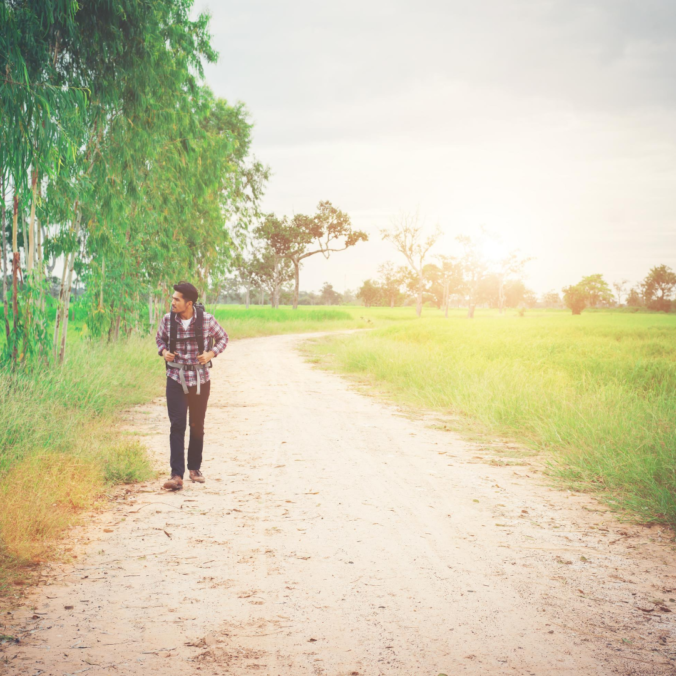Those living in big cities, like Toronto, are often surrounded by more man-made structures than trees. But even in cities, it’s possible to find some green space! If you live in an urban centre, make connecting with nature a priority – not just because it’s fun, but because it benefits your mental health.

The Impact of Nature on Mental Health
Did you know that the incidence of mental illness is 30 percent more common in urban areas than in rural settings? This is largely attributed to the lack of green spaces and the stressful lifestyles of those living in big cities. According to Conservation Ontario and Mood Walks, if you live within 1 kilometre of green space, you are 30 percent less likely to suffer from anxiety and 25 percent less likely to suffer from depression.
But, what if you don’t live within 1 kilometre of green space? What if the view from your window is a skyscraper, highway, or endless storefronts and offices?
Those living in the big city may need to go out of their way to find nature spots, but the effort is well worth the return. By spending time outside, you can experience these benefits:
- Increased vitamin D levels
- Reduced cortisol, the stress hormone
- Increased endorphin and dopamine levels
- Increased creativity and focus
- Better quality of sleep

Our Desire for Nature During COVID-19
Before the coronavirus pandemic, we were already spending 90 percent of our lives indoors. We gravitate towards technology, convenience, and comfort, all of which we find inside our homes. However, the pandemic has caused a shift in our human desires, a shift that is making more people want to spend time outdoors. Why?
For one thing, social distancing practices make it hard to see your loved ones without a video calling app. When you go outside, however, you can easily sit 6 feet away from your friend or loved one and catch up. The times we used to spend sitting indoors with our peers are now spent in parks because that’s where you can safely socialize in person.
Many of us are experiencing cabin fever. We can’t go on our normal summer vacations and we’re getting bored of being in our homes. Suddenly, the parks we used to walk by without thinking about are looking more appealing. Simply changing our scenery, eating a meal or reading a book in the park, is enough to lift our moods.

How to Spend More Time Outside
Even those living in a concrete jungle can find nature if they do some research. Toronto, for instance, has over 1600 parks that cover 13 percent of the city. Take a walk around your neighbourhood and find the parks located near you. You might be surprised to find outdoor Ping-Pong and chess tables, community gardens, and outdoor yoga classes all for your enjoyment. Toronto also has an extensive list of walking trails that immerse you in nature and give you a break from the hustle and bustle.
Here are some other ways you can spend more time outdoors:
- Work from your porch or balcony
- Take phone calls outside and consider walking meetings
- Go for picnics and eat meals outdoors
- Watch the sunrise or sunset from your roof or patio
- Read a book, journal, or meditate at the park
- Bring a blanket, extra layers, and a thermos of tea to enjoy the outdoors during colder seasons
Another way to spend more time outdoors is to enroll in one of Mood Walks’ programs. Mood Walks is a province-wide initiative with CMHA to promote spending time in nature to improve mental health. They have a program solely devoted to young adults living with serious mental illness looking to incorporate hiking into their recovery.
And, remember, it’s okay if you don’t always feel happy during the summer months. Be gentle with yourself, spend some time outdoors, and ask for help. You can also read our blog post on Seasonal Affective Disorder in the summer for more information.
Eli’s Place will be a rural, residential treatment program for young adults with serious mental illness. To learn more about our mission and our proven-effective model click here.




